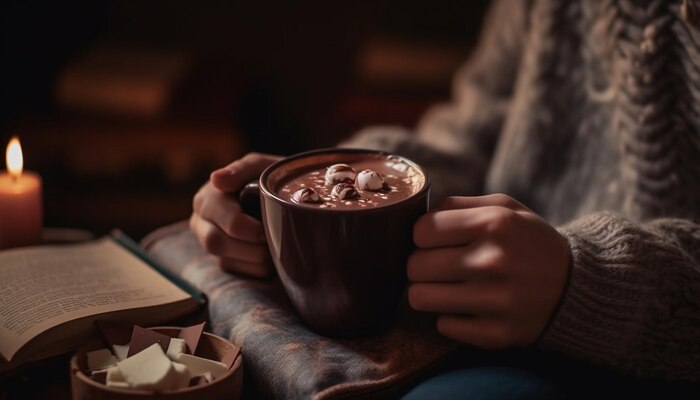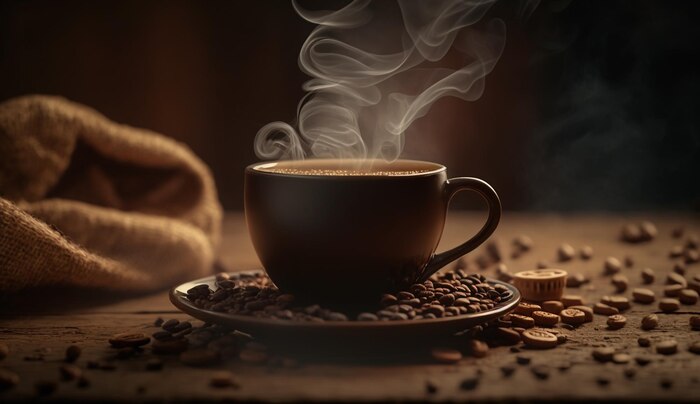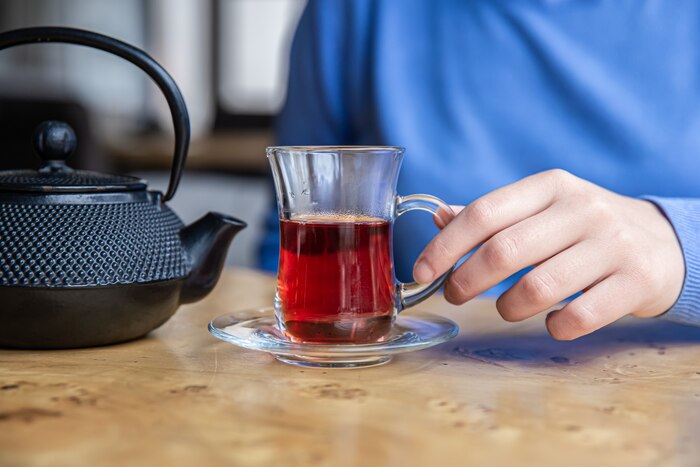The amount of caffeine in caffeinated beverages
Caffeine is an edible chemical that many people get during the day by drinking coffee, tea, cocoa, cola, etc. Drinking a cup of caffeinated beverage in the morning or while working increases energy, alertness, concentration and temporarily improves memory.
Also, this chemical can increase fat burning, increase body metabolism (fuel) and help lose weight. Excessive consumption of caffeinated beverages leads to harmful effects such as sleep disorders, stomach ache, stimulation of the central nervous system, etc. If you are very interested in drinking tea, coffee, etc., we suggest you read this part of Star.
Black tea: 45 mg
Black tea has the highest amount of caffeine among different types of tea. A cup of black tea has about 45 mg of caffeine, which is why many people drink tea in the morning, because the caffeine in this drink provides them with enough energy and alertness to continue their activities.
![]()
Coca Cola: 40 mg
Coca-Cola is a popular carbonated soft drink that is sold in more than 200 countries. In many western countries, this soft drink is called Coke with a simpler name, and in the Middle East and Iran, it is called Coca for short. A regular can of Coca-Cola can contain about 40 milligrams of caffeine, while a can of Diet Coke has 46 milligrams of caffeine.
Green tea: 20 mg
Green tea is one of the best types of tea that has great health properties and many people drink it to lose weight. Each cup of green tea contains 20 mg of caffeine, caffeine is one of the best and most effective substances in burning fat and improving body performance.
Hot chocolate: 19 mg
Hot chocolate is one of the best and tastiest drinks served around the world. Like coffee, tea and soft drinks, hot chocolate contains caffeine. The exact amount of caffeine in hot chocolate depends on how you prepare your drink. Usually, a cup of hot chocolate contains 19 mg of caffeine.

Dark coffee: 236 mg
Demi coffee is a coffee that is made by pouring hot water on the coffee that is placed inside a paper filter. Demi coffee has a lot of caffeine and there are 236 mg of caffeine in each cup.
Instant coffee: 82 mg
Instant coffee is a type of coffee made from coffee extract. Instant coffee generally contains less caffeine than regular coffee, one cup of instant coffee contains 82 mg of caffeine, so this coffee can be a good option for those looking to reduce their caffeine intake.

Espresso: 60 mg
Espresso is the undisputed king of coffees and a concentrated form of coffee drink that is obtained by passing hot and pressurized water through finely ground coffee. A shot of espresso (about 30 ml) contains about 60 to 75 mg of caffeine.
Source Link

